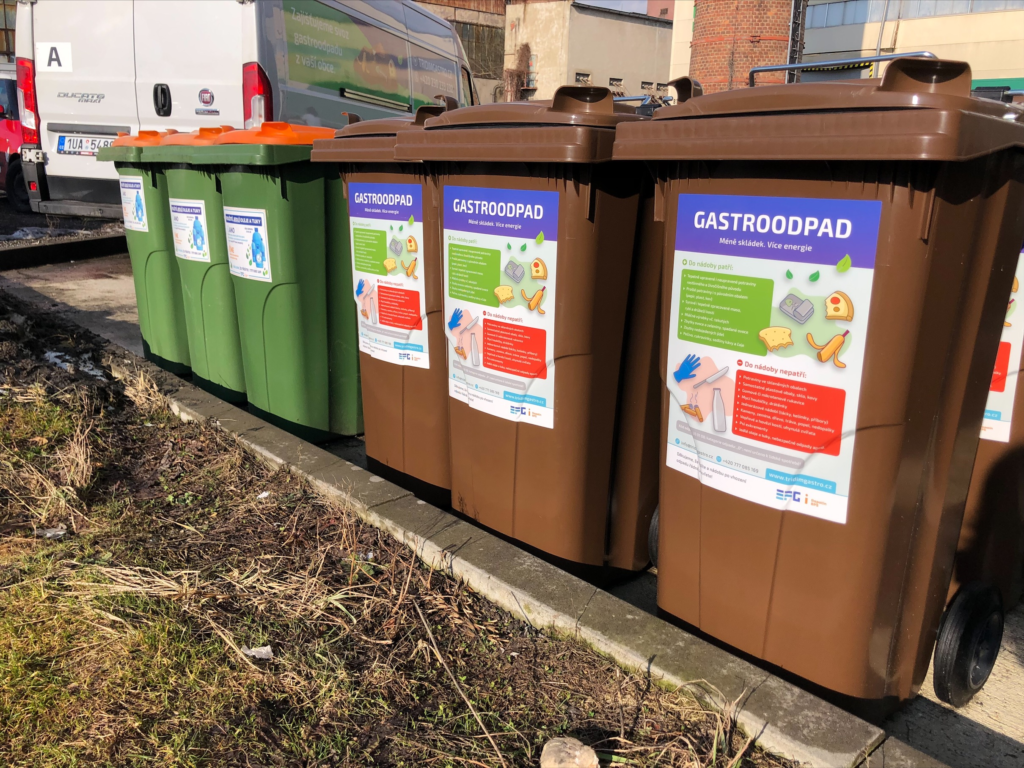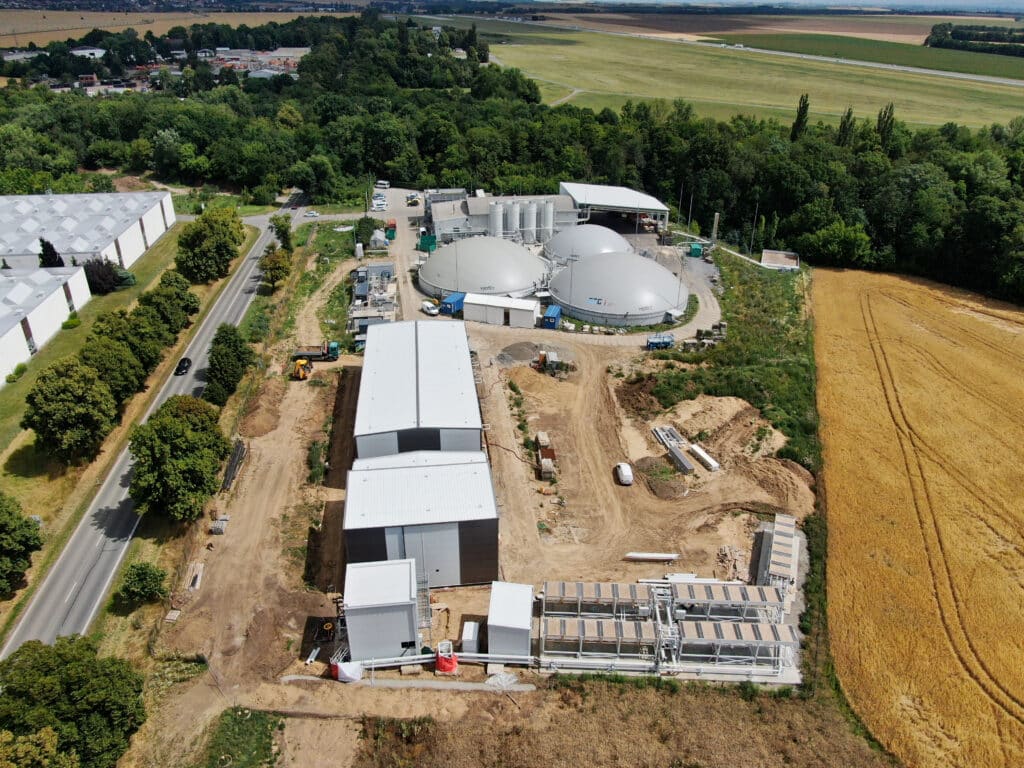From the perspective of the Energy Financial Group (EFG), the summer of 2025 brought several fundamental legislative changes that create more favorable conditions not only for the faster development of biomethane, but also regulate the conditions for the provision of power balance services in Czechia. The new Waste Management Plan, the amendment to the Energy Act known as Lex Plyn, and the Action Plan to Support the Development of Biomethane Use pave the way for greater use of biodegradable waste, accelerate the permitting of new facilities, and enhance the attractiveness of investments in modern energy projects.
Table of Contents
New Waste Management Plan
On July 23, 2025, the Czech government approved a new Waste Management Plan, which sets the direction for sustainable waste management in Czechia until 2035. Its main objectives are to prevent waste generation, reduce mixed municipal waste production, increase recycling rates, and significantly reduce landfilling, particularly of biodegradable components. In addition, a ban on landfilling recoverable waste will come into force in 2030.
In order to achieve this goal, the plan emphasizes the effective management of biodegradable waste, especially kitchen waste. According to estimates, its total production is expected to double from the current 900,000 tons to 1.9 million tons per year by 2035. The plan therefore envisages expanding the separate collection of this type of waste in households, schools, and catering establishments and building the necessary infrastructure—from collection containers and yards to collection vehicles and end-of-line facilities such as composting plants and biogas stations. These will enable the waste to be used for energy and converted into green gas, electricity, heat, or high-quality digestate that can be used in agriculture.
The “Třídím gastro” project significantly helps municipalities and cities with the implementation of the system of separating food waste from municipal waste. It currently provides collection and low-emission processing of food waste in biogas stations in Rapotín and Vyškov in five regions in Czechia. This reduces the volume of waste in black bins and thus also in landfills, while at the same time it decreases greenhouse gas emissions.

Action Plan for Biomethane Development
At the same time as the Waste Managment Plan, the government also presented an Action Plan to Support the Development of Biomethane Use. This plan builds on the National Energy and Climate Plan (NEKP) and the amendment to the Act on Supported Energy Sources. The plan anticipates a gradual increase in biomethane production, mainly thanks to the transformation of approximately half of biogas stations into biomethane stations. By 2029, at least 100 biomethane stations should be built in Czechia.
The plan assumes that by 2030, approximately half of the biogas should be used for biomethane production. Overall, biogas production should increase from the current 1,300 million Nm3 to 1,470 million Nm3, i.e. by approximately 12%. Domestic biomethane production should then increase to 500 million Nm3 per year by 2030.
The plan also defines what is key to the development of biomethane: stable availability of biodegradable waste, a clear and effective legislative framework to speed up approval processes, and sufficient investment in modern technologies and infrastructure.At the same time, it highlights barriers that may slow down development, in particular complex and lengthy permitting procedures, high initial costs, and insufficient coordination between the state administration, municipalities, and the business sector. It therefore stresses that support for the construction of biomethane stations must go hand in hand with the systematic removal of these obstacles through cooperation between all relevant actors.

Lex Plyn: Accelerated Construction and More Stable Conditions
On August 1, 2025, the long-awaited amendment to the Energy Act, known as Lex Plyn, came into effect, along with changes to the Act on Accelerating the Use of Renewable Energy Sources. Their common goal is primarily to simplify and accelerate the permitting processes for the construction of renewable energy production facilities. However, the changes also have other fundamental implications for the energy sector – the amendment introduces restrictions on so-called “energy spoilers” in the provision of power balance services and introduces a system of non-refundable deposits when reserving capacity in the grid when connecting new sources. These measures should unlock capacity and increase the transparency of connecting new sources to the electricity grid, while also contributing to greater predictability of investments and strengthening the stability of the energy market.
Launch of the ALPACA System: Connecting the Czech, German, and Austrian Balancing Services Markets
The ALPACA (Allocation of Cross-zonal Capacity and Procurement of aFRR Cooperation) project was launched at the beginning of September. It connects the markets for the provision of power balance services and technical flexibility in the Czech Republic, Germany, and Austria. Thanks to this project, these countries can exchange aFRR regulatory reserves. These reserves serve to maintain a balance between production and consumption in the transmission system and help to maintain a stable frequency. This interconnection represents another step towards the creation of an integrated European market for power balance services.
The integration of the Czech Republic into the ALPACA project will increase competition on the domestic market for ballancing services, as foreign entities will also be able to participate. At the same time, however, it will open up new opportunities for providers – for example, the possibility of offering aFRR services on the German market, where demand for these services is up to fifteen times higher than in Czechia.
“From our point of view, legislative developments in Czechia are moving in the right direction, and all EFG projects across the waste and energy sectors are fully compliant with them. The new legal frameworks not only support the responsible treatment of biodegradable waste, but should also accelerate the growth of biomethane production and strengthen the stability of the investment environment. We believe that this will greatly benefit the development of the entire sector and facilitate the implementation of projects with a real impact on the development of strategically important energy sources in the Czech Republic,” concludes Tomáš Voltr, EFG’s CEO.
Energy Financial Group: Growth Across Sectors
The EFG investment group is a leader in Czechia in the field of energy recovery from biodegradable waste and the conversion of biogas into biomethane. Since 2016, it has been building and operating projects focused on energy production from renewable sources. It also focuses on providing power balance services. The group’s key areas of activity include the EFG Rapotín BPS and EFG Vyškov BPS biomethane stations equipped with state-of-the-art technologies, the MOSTEK energo power plant, and the “Třídím gastro” project supporting municipalities and cities in the separation and energy processing of food waste.
By mid-2026, the group should have an annual capacity of:
• 94,000 tonnes of processed biodegradable waste,
• 116 GWh of biomethane production,
• 40 MW of flexible capacity for providing power balancing services.
This growth demonstrates that the group is on track to meet its strategic goals for 2030:
• 70–75 MW of flexible capacity for providing power balance services.
• 380,000 tonnes of processed biodegradable waste,
• 500 GWh of biomethane production,

